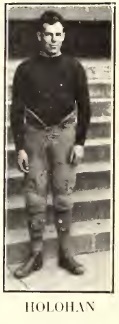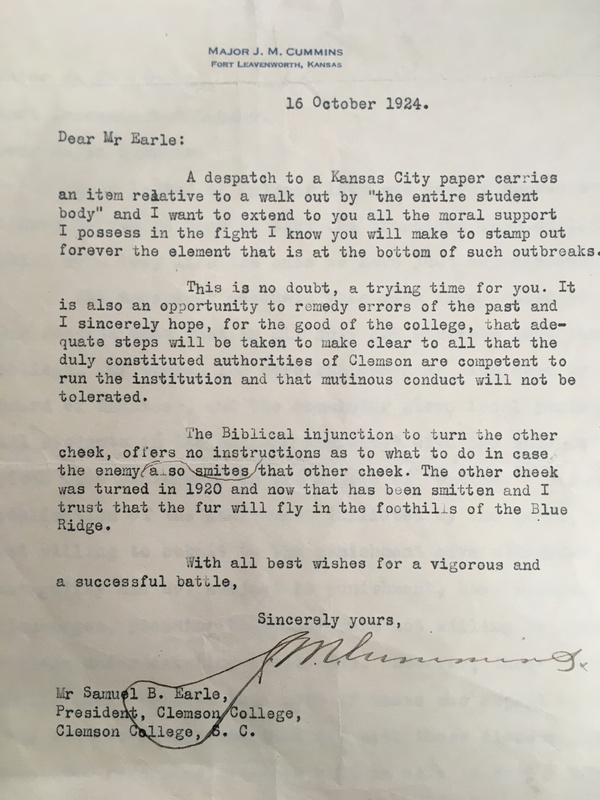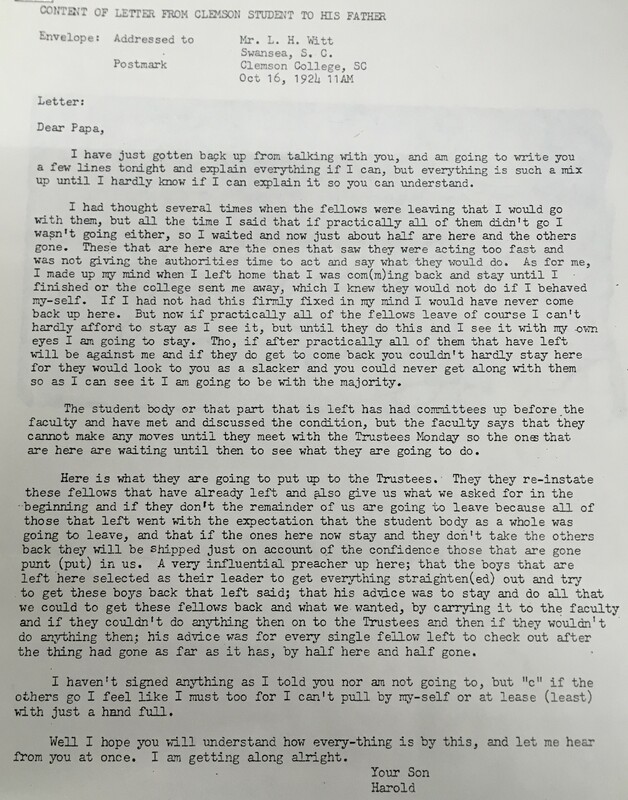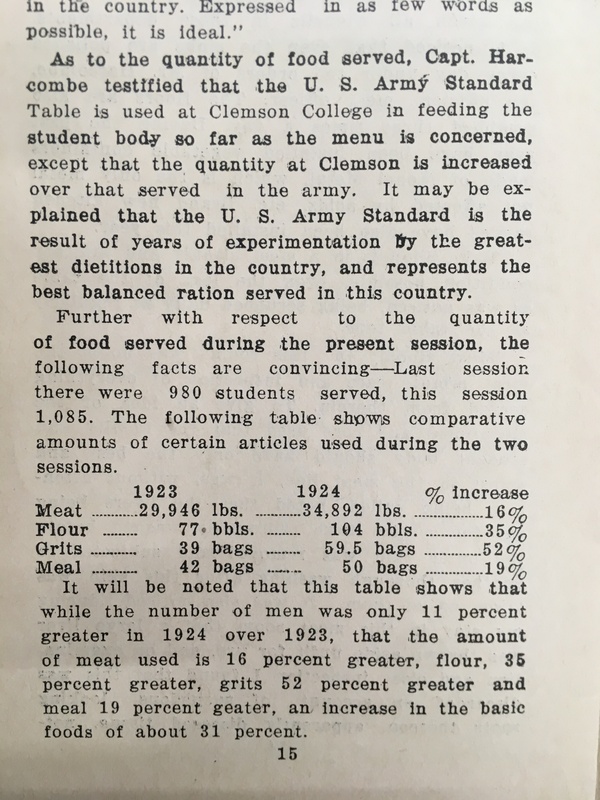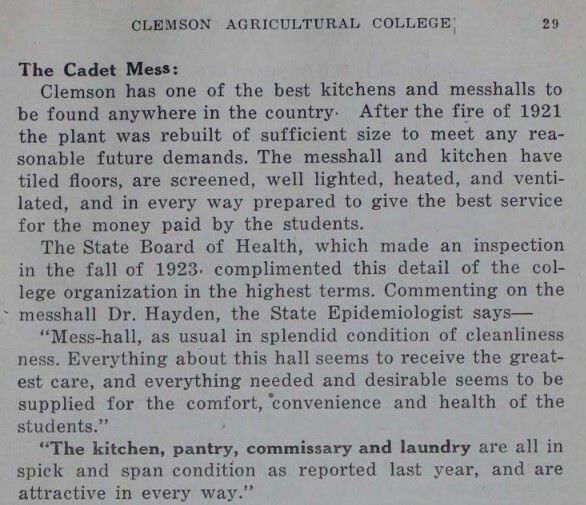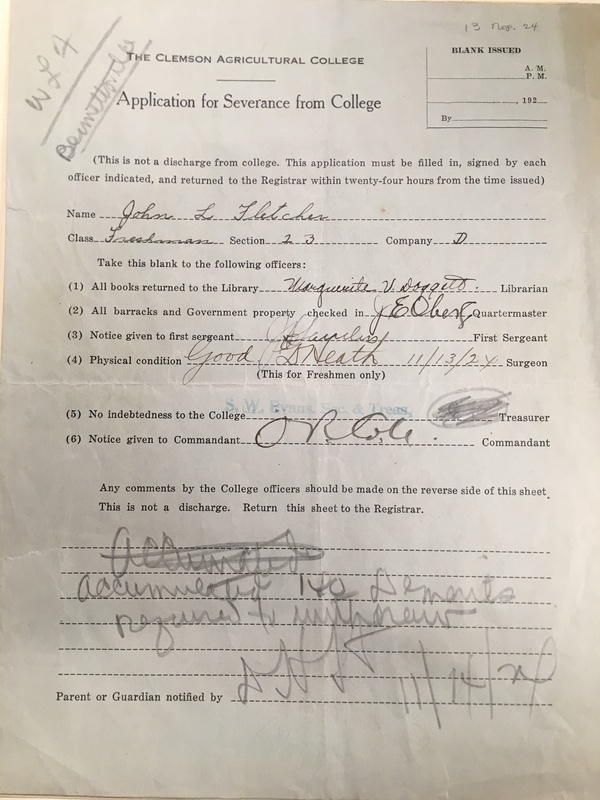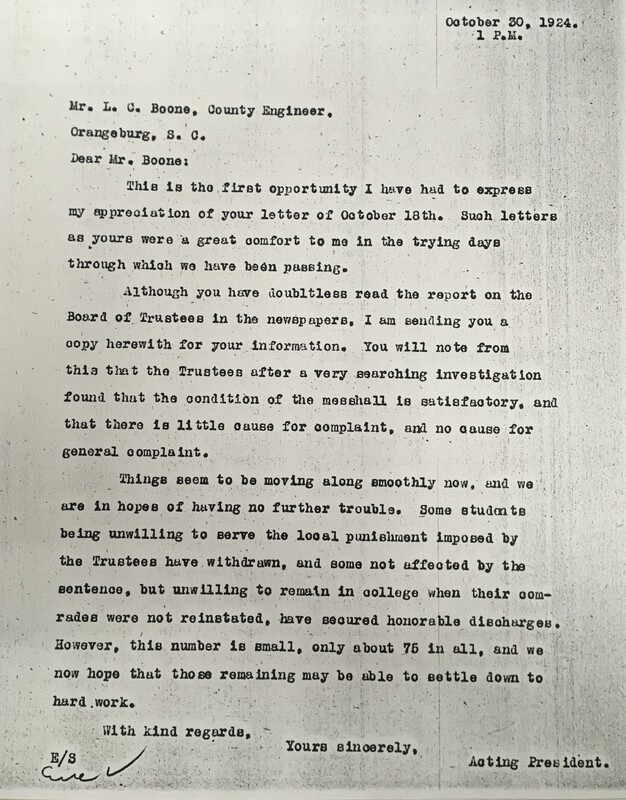1924 Walkout
On October 13, 1924, Clemson was once again entangled in student dissent. After members of the senior class complained to President Samuel Earle about food conditions at a recent meal, Commandant Cole met with the Senior Class Committee. At this meeting, Commandant Cole claimed to smell alcohol on the breath of the senior class president and captain of the football team, R. F. "Butch" Holohan. Cadet Holohan, having faced accusations of alcohol consumption before, was suspended by the Disciplinary Committee and promptly sent home.
Immediately, the senior class banded together on Riggs Atheltic Field and generated a list of demands. Their demands included improved food, changes to the mess hall staff, and the reinstatement of Cadet Holohan. This last demand seems to have been motivated by the fact that the Clemson football team faced an upcoming game against archrival University of South Carolina. President Earle agreed to investigate the food conditions (indeed, he directed a professor of chemistry to test the food for contamination), but he firmly rejected the request for Holohan's reinstatement. Nearly 250 students, mostly belonging to the senior class, were dissatisfied and stated that they "were walking" (Reel 239).
The walkout participants, once again, did not receive much in the way of support. President Earle received letters of support. One of these letters is particularly fascinating as it was sent from the former Commandant of 1920 infamy, James M. Cummins. As word spread throughout the state, those who walked out were once agin met with widespread denunciation. Those who walked out even faced condemnation from their fellow students who remained on campus. Cadet Harold Witt, a younger cadet who did not leave campus, sent a letter to his father stating that he and the majority of the student body did not support the actions of the senior class.
In the days following the walkout, a State Board of Health employee surveyed the mess hall and found no irregularities. By October 20, the Board of Trustees had met and determined that the protest was entirely baseless. Along with the findings of the State Board of Health, the Board of Trustees presented figures indicating an increase in food quantity and no anomalies in discipline. Nevertheless, several students refused to return to campus. It is unclear the exact reason for these requests for severance, but these students likely withdrew based on the will of their parents. Generally, it appears that the fresh Department of Student Affairs had been reasonably effective at improving the student experience at Clemson in the years since 1920.
